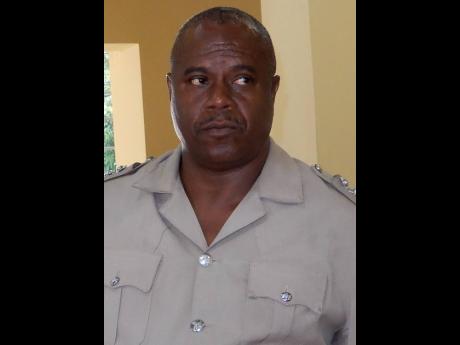Editorial | JCF still has a big job
The police high command’s advice to citizens against resisting arrest even when they believe they are being hard done, as well as its repudiation of Deputy Superintendent Paul Bernard’s disparagement of licensed firearm-holders for not shooting criminals, are appropriate.
And DSP Bernard’s statement of regret for his remarks, even though we remain a bit hazy whether he apologised because he felt his branding of the legal gun owners as cowards derogated the contributions of the people's support the constabulary in community-based policing (whatever he presumes that to mean), or he genuinely felt that he had offended a fundamental principle of the Jamaica Constabulary Force (JCF), is welcomed.
However, the incidents which gave rise to the high command’s intervention are indicative of the kinds of narrative of the constabulary that the new police chief, Kevin Blake, would like to erase, but, notably, were not scripted outside the force. Neither are the sentiments and actions – although not always as openly declared as in DSP Bernard’s case – especially rare.
So, while the JCF has made gains in changing from the change-resistance corrupt, jackbooted, paramilitary force many Jamaicans perceive it to be, it still has significant work to do to achieve sustained transformation.
Much of that effort has to be concentrated on the people, as opposed to the materiel element of the force, so that its members deeply internalise the concept of constabulary as a higher order of service institution, and the idea of policing by consent.
APPRECIATE OBSERVATIONS
Indeed, the leadership of the JCF must appreciate observations such as these, as well as other criticisms of the police force, not as intending to create a false narrative, but to help it to become the very best possible version of itself.
This process of sustained transformation begins with the philosophical frame the JCF sets for itself, and thereafter how it recruits and trains its members.
One area that it seems to be in need of urgent attention and/or reinforcement is the capacity of police officers to de-escalate problems. Which was part of the issue in the high command’s suggestion to Jamaicans to peacefully submit to arrests and complain or take legal action afterwards.
A video widely circulated this week showed a female police grabbing the hair, and struggling with a woman, who, on its face, was resisting being arrested. The intended detainee – who was eventually forced into a vehicle with the help of a male officer – was also grabbing the female’s officer’s shirt.
Viral videos of police tussling with, or beating people who appear to be resisting arrest, or otherwise being difficult are not rare. There have been several recently.
It was important, the high command said, for people to “remain calm and comply with police instructions” during interactions with constables, especially in cases of arrest.
This newspaper agrees that citizens should follow all lawful commands of police officers.
But officers have an obligation, too, to remain calm and to do their best to de-escalate potentially volatile situations. This demands training.
DE-ESCALATION TECHNIQUES
Indeed, de-escalation techniques are increasingly used instruments in the toolboxes of law-enforcement bodies globally. They help to reduce conflicts and the use of force. For example, a 2020 study of the Louisville Metro Police Department in the US state of Kentucky, whose officers received de-escalation training by the Police Executive Research Forum (PERF), showed a 28.1 per cent reduction in use-of-force incidents; a 26.3 per cent decline in citizens’ injuries; and a 36 per cent fall in officer injuries. PERF is the agency that nearly three decades ago helped to formulate a community policing programme for Jamaica that included the establishment of the model Grants Pen, St Andrew police station.
The effectiveness of de-escalation strategies in a Jamaican context was evident in a viral video at the height of COVID-19 pandemic, when a man at the Hellshire Beach (which was supposed to be closed) verbally abused police officers attempting to institute the closure order. A potentially violent situation was allowed to peter out because of the officers’ calm engagement. The man might have thought he had got away with the many breaches of law, but was soon brought before the courts and convicted.
DSP Bernard’s attempt to shame, and rile, legal firearm-holders to a kind of vigilantism is antithetical to this kind of policing; to a constabulary that operates on high principles; and of the presumption that the rights of every citizen are sacred.
The high command appropriately described his remarks as “reckless and not representative of the values and professional standards of the JCF”.
Mr Bernard agreed with those sentiments, and also said, “As a 38-year advocate of community-based policing, I am deeply sorry for any distress or harm my words may have caused to the community, my colleagues, and the wider public.”
For which sentiment did he apologise? For calling people cowards, or for his incitement to vigilantism? The latter is the more egregious of DSP Bernard’s indiscretion.
How he is dealt with is one matter. It is more important for the high command to root from the JCF’s any residue of the culture DSP Bernard ascribed to it.

